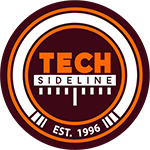See what happens when a school charges fans too much?
Summary:
Changing a policy that raised money but alienated fans, the University of Delaware announced Wednesday it will no longer include a required UD Athletic Fund donation with most football season-ticket purchases beginning next season. The additional levy, instituted in 2011 and eased in 2013, had contributed to a decline in attendance at Delaware Stadium, athletic director Chrissi Rawak said. The fee on seats affected by the change ranged from $50 to $125 per ticket in 2016. – Kevin Tresolini , The News Journal.
------------
Article:
Fan appreciation day: UD eases football ticket tax
Kevin Tresolini | The News Journal
Unpopular levy, which contributed to shrinking Delaware Stadium crowds, eliminated for grandstand purchases in 2017
NEWARK – Changing a policy that raised money but alienated fans, the University of Delaware announced Wednesday it will no longer include a required UD Athletic Fund donation with most football season-ticket purchases beginning next season.
The additional levy, instituted in 2011 and eased in 2013, had contributed to a decline in attendance at Delaware Stadium, athletic director Chrissi Rawak said. The fee on seats affected by the change ranged from $50 to $125 per ticket in 2016.
“We have listened,” Rawak wrote in a letter to previous season-ticket buyers and the UD community.
Beginning in 2017, no season tickets in the East (visitor’s side) or West (home side) grandstand will include the additional cost, which goes toward scholarships and other costs the UD Athletic Fund supplements. The tariff will still be included on box seats and parking.
Delaware has been among the top 10 nationally in attendance for the past 20 years in the NCAA’s Division I Football Championship Subdivision (FCS). But there has been a drop-off in crowds and season-ticket sales that coincided with the additional fee in recent years.
“A full Delaware Stadium on game day is an experience that is difficult to match in FCS football,” said John Dollmeyer, president of the Blue Hen Touchdown Club fan group. “If making season tickets more affordable helps make that happen, I think that is a great thing.
In 2016, Delaware sold roughly 5,500 season tickets for football. In 2010, the last year before a fee adding anywhere from $50 to $500 per seat was added, UD sold 9,700.
Delaware has also failed to make the FCS playoffs since 2010 — its longest-ever NCAA postseason drought. In her letter to fans, Rawak also wrote, “This is the first of many steps to come.”
Rawak told The News Journal she was referring to improving the game-day experience through “the product on the field and potential opportunities for stadium renovations.''
Delaware is in the hunt for a new coach. Coach Danny Rocco of CAA rival Richmond has emerged as a possible front-runner, The News Journal has learned. Rocco, 42-21 at Richmond after going 47-20 as Liberty coach, told the Richmond Times-Dispatch Wednesday he does expect to have other options after this season, without being specific.
Other candidates do remain under consideration. That list is believed to include Chattanooga coach Russ Huesman; Coastal Carolina coach Joe Moglia; Tennessee defensive coordinator Bob Shoop, former head coach at Columbia; Ex-Lehigh, Elon and Ball State coach Pete Lembo, now assistant head coach/special teams coordinator at Maryland; Mike London, who coached Richmond to the 2008 FCS title, then was Virginia’s coach and now is Maryland’s associate head coach/defensive line coach; and Sam Houston State offensive coordinator Phil Longo, La Salle head coach in 2004-05.
Another name that recently surfaced is Concord High graduate Brian Smith, who starred as a defensive back at Massachusetts and is now Michigan’s secondary coach after previous stints at UMass and with the New York Jets and Philadelphia Eagles.
Richmond is at North Dakota and Chattanooga visits ex-UD coach K.C. Keeler and Sam Houston State Saturday in the FCS playoffs, which may have delayed Delaware’s ability to name a coach.
Rawak, hired in May from the University of Michigan, where she was heavily involved in fundraising, said Wednesday night that Delaware will see a decline in UDAF revenue, though she didn’t have actual dollar figures available for how much the ticket toll brought in. But she is confident UD can make up for that through simple goodwill.
“Yes there’s a revenue hit,” Rawak said, “but we’ll find other ways. I honestly believe by making this decision and really communicating and stewarding and appreciating our season-ticket holders in a way that makes them feel valued, which they should . . . I just felt like this was the right thing to do.”
Much of that, Rawak added, came from her own discussions with UD fans before, during and after games and with a survey conducted by UD sport management professor Matt Robinson, who was interim AD from January through May.
“I believe we’re doing the right things for the right reasons,” Rawak said. “It’s clear we’ve had a pretty significant decrease in our season-ticket holders over the last five to seven years and I guess I’m hopeful this will stimulate people to come back and to believe in us and to believe we’re moving in a direction we can all feel really good about and want to be a part of.”
Long-time Delaware fan Patsy Keller termed it “extortion” when, in 2009, Delaware began tying seat and parking locations to UDAF donations. A year later, former Blue Hen Touchdown Club president Connie Cecil cried “black mail” when it was announced the required UDAF season-ticket donation would go into effect in 2011.
Some wounds won't be healed.
"I will not get season tickets again because of the change," said Ron Niblett, who had regularly attended games with Bill Marsey before the ticket fee was instituted. "They should have never changed the policy in the first place. I call it greed."
It initially included every season ticket purchased between the 10-yard lines in both the East and West grandstands. The fee applied only to season tickets, meaning fans could avoid it by making single-game purchases. But many complained that they had been in the same seats for years, around people they’d come to know, and didn’t want to move.
In instituting the charge, UD officials said it was overdue, needed to balance the athletic budget and similar to what was being done at other top-level FCS schools. Then-athletic director Bernard Muir, who inherited the plan, said at the time that Delaware was willing to lose a few fans to boost its finances.
Delaware saw season-ticket sales dip to 7,950 in 2011, despite the Blue Hens having reached the NCAA title game in 2010. The school record for season tickets sold was 11,302 in 2008.
In February of 2013, however, Eric Ziady, who had become athletic director the previous fall, announced that two sections in the East grandstand that comprised more than 2,500 seats would no longer include the required donation and the three middle sections in the East stands had a decrease in the donation payment. There was also a ticket-price cut in most stadium sections.
By the last two seasons, season-ticket sales had fallen to around 5,500. Changing fan viewing habits, the advent of social media, an increase in televised games, fewer game-day recreational freedoms in the parking lots surrounding Delaware Stadium and Delaware’s lack of competitive success have been cited as other factors. But the required UD Athletic Fund donation has remained a popular complaint, especially among long-time fans.
“I am surprised but happy to see this,” said John Cawley, a season-ticket buyer for 42 years whose fees increased about $300 annually. “It shows they are really listening as this has been a real issue for a while.
“As someone who used to tailgate at UD games for many years with a core group of 20 to 25, it’s been just me out of that group for a good while now, with the primary reason the others leaving being the season-ticket-holder donation requirement. I am hoping that brings them and many others back and gets people in the seats again and they generate more revenue that way.”
The Blue Hens remain among the most popular draws in FCS. Delaware set a record with average regular-season attendance of 22,280 in 2004, the season after it won the Division I-AA (now FCS) national title. Average attendance stayed above 21,000 through 2008 and above 20,000 in 2009 and 2010.
A steady decline followed, the worst being 2014, when average attendance was 15,682, the lowest since 1969 (13,830), which was the year before Delaware Stadium was expanded to its present capacity of roughly 22,000-plus. Attendance improved slightly in 2015 (15,826) and the recently completed 2016 season (16,478) even though Delaware had a pair of 4-7 records, its first back-to-back losing seasons since 1938-39.
Delaware has ranked in the top 10 nationally in FCS attendance annually since 1997, including being in the top five from 2000 through 2010. The 2016 average regular-season attendance ranked No. 8 nationally in FCS.
“Every culture is different and every community is different,” Rawak said. “ . . . Just because you do this at a Michigan or you-name-the-place doesn’t mean it has to apply here. Just because you can doesn’t mean you should. I want the folks that felt alienated or not valued to come back.”
Link: Article
Posted: 12/02/2016 at 06:27AM
+0
Insert a Link
Enter the title of the link here:
Enter the full web address of the link here -- include the "http://" part:
Enter the full web address of the link here -- include the "http://" part:

|
Current Thread:
|














